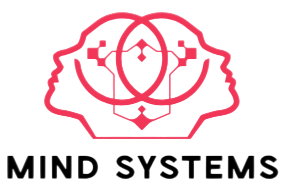In today’s rapidly changing digital landscape, staying relevant is crucial for businesses to thrive and succeed. The digital marketing revolution has transformed the way companies connect with their audiences and keeping up with the latest trends and strategies is essential to remain competitive. One of the key aspects of the digital marketing revolution is the shift towards personalized and targeted marketing. Gone are the days of one-size-fits-all advertising. With the wealth of data available, businesses can now tailor their marketing efforts to specific demographics, interests and behaviors of their target audience. By utilizing advanced analytics and customer segmentation, companies can deliver highly personalized content and experiences, resulting in increased engagement and conversions. Furthermore, the rise of social media platforms and the ubiquity of mobile devices have revolutionized the way people consume content and interact with brands.

To stay relevant, businesses must establish a strong online presence across various social media platforms and optimize their websites for mobile devices. Engaging with customers through social media channels, sharing valuable content and actively participating in conversations and trends are essential to building brand awareness, fostering customer loyalty and driving traffic to their websites. Another significant aspect of the digital marketing revolution is the importance of creating high-quality, valuable content. With the overwhelming amount of information available online, consumers have become more selective about the content they consume. To capture their attention and stand out from the competition, businesses need to provide relevant and valuable content that addresses their audience’s pain points, educates them and provides solutions and pop over to these guys https://quadrobits.com/. Content marketing, such as blog posts, videos, infographics and podcasts, plays a pivotal role in attracting and engaging customers, as well as establishing thought leadership within the industry.
Moreover, the rise of artificial intelligence (AI) and automation has revolutionized digital marketing strategies. AI-powered tools and algorithms enable businesses to analyze vast amounts of data, optimize campaigns in real-time and provide personalized experiences at scale. Chatbots and virtual assistants have also become increasingly popular, allowing businesses to provide instant customer support and improve overall user experience. Embracing AI and automation in digital marketing strategies can help businesses streamline processes, enhance efficiency and deliver more targeted and personalized experiences to their customers. Finally, staying relevant in the ever-evolving online landscape requires continuous learning and adaptation. Digital marketing trends and technologies are constantly evolving and businesses need to stay abreast of the latest developments. This can be achieved through ongoing education, attending industry conferences and webinars, networking with other professionals and monitoring competitors’ strategies. By remaining agile and adaptable, businesses can seize opportunities, respond to market changes and stay relevant in the dynamic digital marketing landscape.
